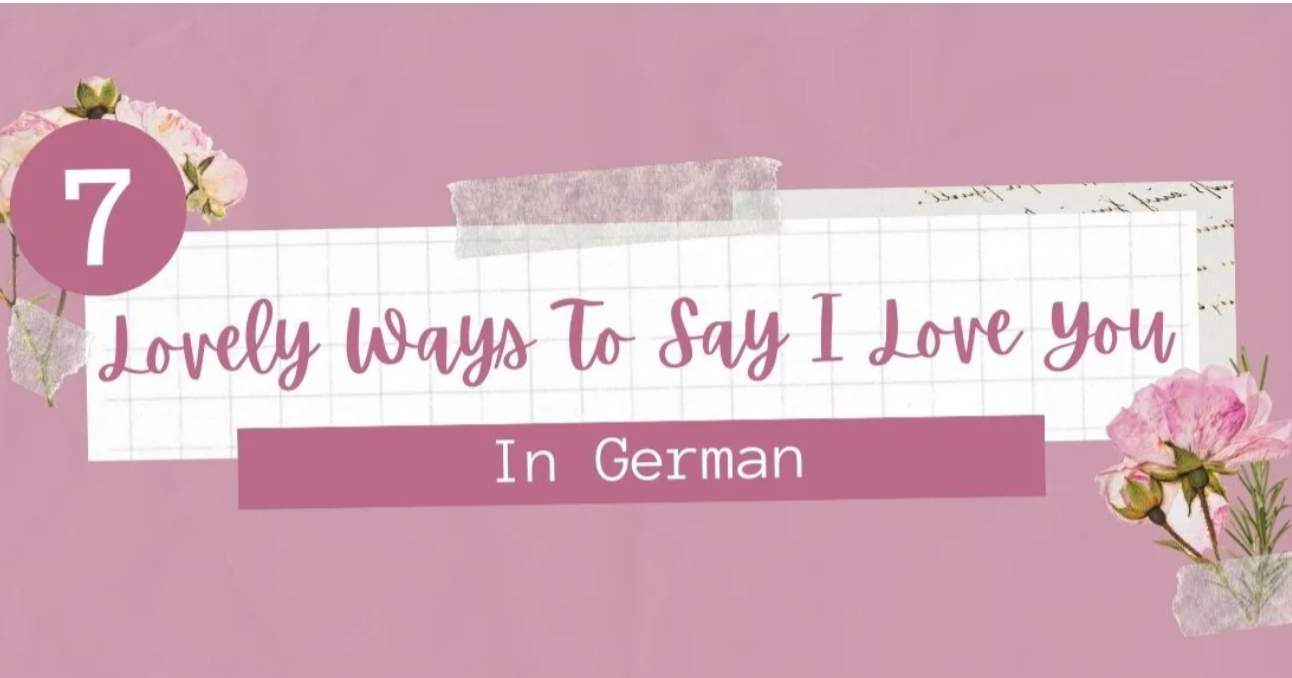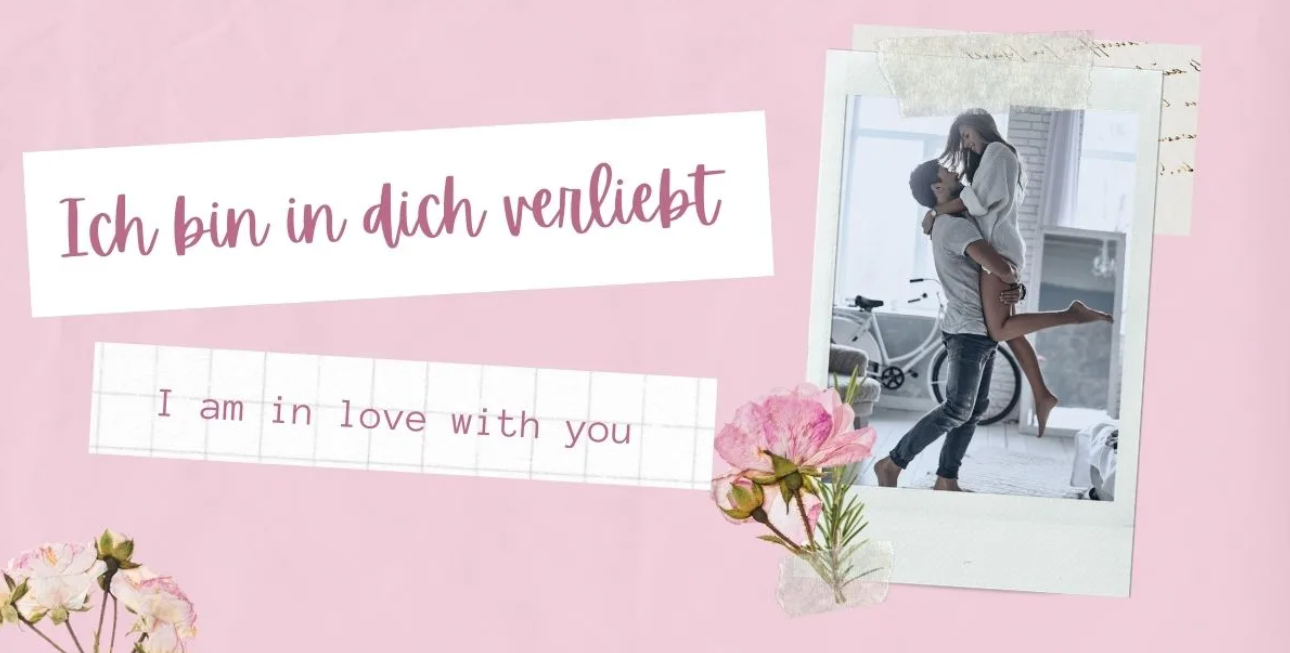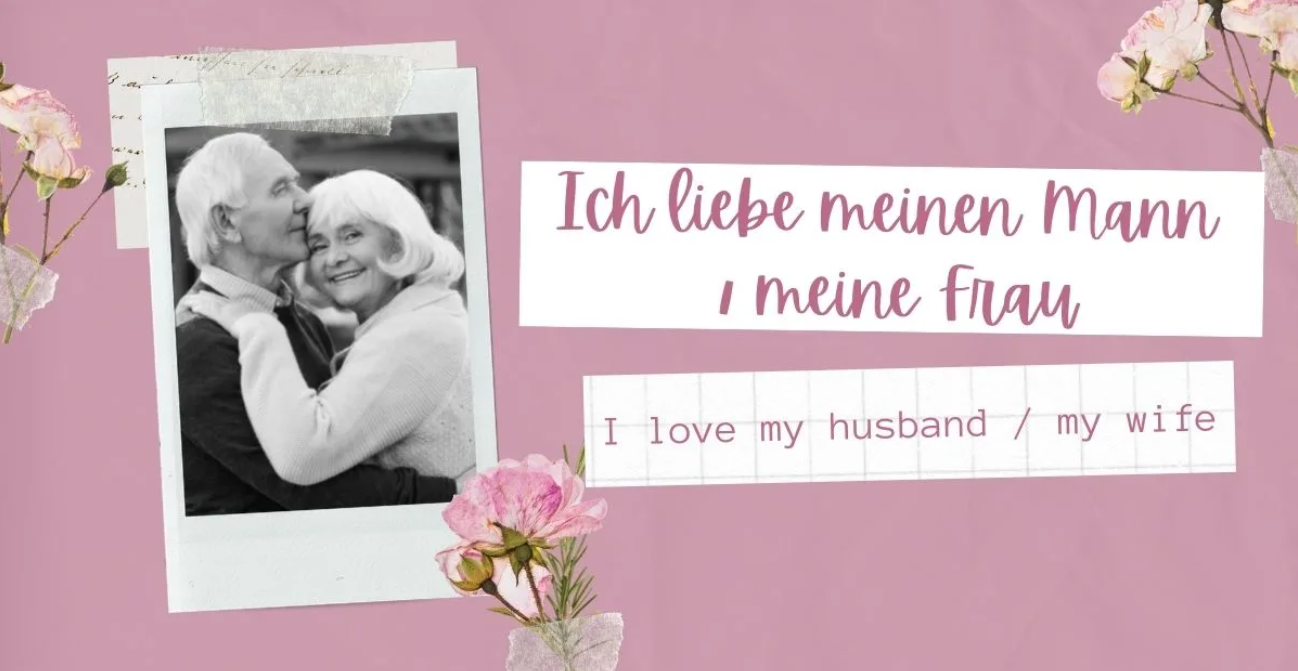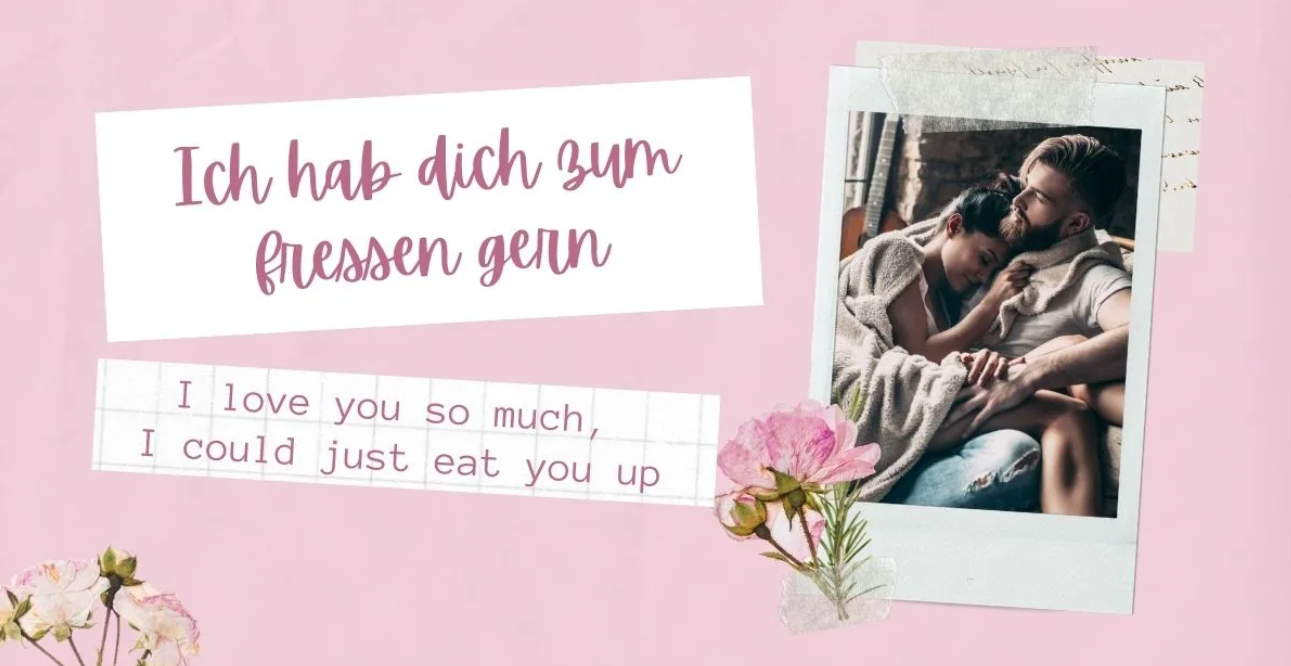
Love has so many different ways, and you can describe it in many words. In various languages, there are numerous phrases for expressing your feelings, whether to your partner, friend, or family.
How do you say “I love you” in German? Of course, you could just look it up in the dictionary — but what if you want to go deeper into the language?
There are many variations you can use, including the already familiar Ich liebe dich (I love you), gentle Ich habe dich gerne (I care for you), or passionate Ich bete dich an (I adore you) — you just need to know which to use when and how.
Today, let’s discover the secret about saying those magic three words in such a way that your loved one’s heart will tingle. And let us prove to you that German can very much be called the most romantic language!
Saying “I Love You” in German — Love Is Love

It is important to make clear distinctions in the language regarding the kind of love you refer to. As you already know, there are different ways of expressing love in German — let’s take a closer look at them:
Ich liebe dich
Native
Translation
Ich liebe dich.
I love you.
Let’s start with the most straightforward way of expressing your feelings. Ich liebe dich is the traditional way to say “I love you” in German. It’s appropriate to use it in serious, long-term relationships as well as with family and friends.
If the sentiment is mutual, you can say it back, adding auch (also, too) to the end of the phrase:
Native
Translation
Ich liebe dich auch.
I love you too.
Ich bin in dich verliebt or Ich habe mich in dich verliebt
Native
Translation
Ich bin in dich verliebt.
I am in love with you.
Ich habe mich in dich verliebt.
I have fallen in love with you.
These are genuine words of affection, which is quite like the pre-step of using the L-word, but a little less serious as saying “I love you” right away.
Ich habe dich lieb vs. Ich hab’ dich Lieb
Native
Translation
Ich hab’ dich Lieb.
Love ya.
This phrase is adorable — it’s like a kind of puppy love. Kids use it a lot when they express their love to a best friend or family member, and it’s commonly used among close friends. This would also be a typical way to acknowledge and express love between romantic partners.
Interestingly enough, this particular phrase is always said with the contraction hab’ instead of the entire word habe. This way, it feels lighter and not too serious.
Ich bin bis über beide Ohren verliebt
Native
Translation
Ich bin bis über beide Ohren verliebt.
I am head over heels in love.
The most accurate English translation for this one is probably “I am head over heels in love.” When you’ve totally lost your marbles over somebody, this is how to tell your friends that you’ve met THE special one.
Du bist mein Ein und Alles
Native
Translation
Du bist mein Ein und Alles.
You’re my one and only.
“You are my everything” or “You mean the world to me” is very romantic, almost cheesy. It’s not really used much by Germans in real-life conversations, but it can often be found on Valentine’s cards.
Ich steh’ auf dich
Native
Translation
Ich steh’ auf dich.
I have a crush on you.
Cool cats say, “I’m into you.”
If the relationship is still in its early days, instead of saying Ich habe mich in dich verliebt (which is pretty bold and the pre-phase of Ich liebe Dich), you could rather play it cool with the phrase Ich steh’ auf dich, which means, harmlessly, “I fancy you” or “I have a thing for you.”
To be fair, it’s more German high school talk and first love anxiety-related kind of phrase. Adults wouldn’t really say that to one another.
Du bist die Liebe meines Lebens
Native
Translation
Du bist die Liebe meines Lebens.
You are the love of my life.
Now, who doesn’t want to hear that? This phrase is, without doubt, the most romantic and committing one to say to your partner. If you hear that, you know the wedding bells are ringing.
German Love-Related Vocabulary

Lieben is the verb “to love” in the German language. The direct object — that is, the person you love — takes the accusative case.
Native
Translation
Ich liebe meinen Mann / meine Frau.
I love my husband / my wife.
Therefore, the way to say “I love you” in German is pretty straightforward, as we previously said:
Native
Translation
Liebst du mich?
Do you love me?
Ja, ich liebe dich.
Yes, I love you.
Ich liebe dich auch.
I love you, too.
Here are some alternatives you might come across:
Native
Translation
Ich mag dich sehr.
I like you very much.
This phrase is not too intense — it’s rather a way of slowly checking out what’s happening. It can be used amongst new, more intensified acquaintances but also if you want to take your friendship with someone to the next level.
Native
Translation
Glück in der Liebe.
Luck in love.
To have luck in love — isn’t that something we all wish for? If you go to see a psychic to ask about your future romantic life, this is what they might tell you.
Cute German Nicknames for Loved Ones
Here are several adorable nicknames, each with an example of their use to help you express your feelings in a uniquely sweet way:
| German Word | English Equivalent | Example | Translation |
|---|---|---|---|
| Schatz | Treasure | Guten Morgen, Schatz! Hast du gut geschlafen? | Good morning, treasure! Did you sleep well? |
| Liebling | Darling | Kannst du mir helfen, Liebling? | Can you help me, darling? |
| Herzblatt | Sweetheart | Du bist mein Herzblatt. | You are my sweetheart. |
That’s the Way Love Goes — German Sayings Related to Love

Love has many ways, and it doesn’t always require speaking out the words to show love or to feel loved. The German language likes to play around with the ways the love goes.
Here are some examples of German expressions about love:
Native
Translation
Liebe geht durch den Magen.
Love goes through the stomach.
Alte Liebe rostet nicht.
An old love never rusts.
Ich hab dich zum fressen gern.
I love you so much, I could just eat you up.
Pech im Spiel, Glück in der Liebe.
Unlucky in gambling but lucky in love.
Wo die Liebe hinfällt.
The mysterious ways where love finds its place.
Was sich liebt das neckt sich.
They fight, so they love each other.
Liebe macht blind.
Love makes you blind.
Von Luft und Liebe leben.
Living just from air and love.
While memorizing these phrases will help you voice your feelings with more precision, it’s also important to pay special attention to tiny gestures, as they sometimes speak louder than words.
Giving flowers to a lover or someone you like a lot, or making them breakfast in bed, watching cheesing Hollywood movies together, looking at each other, hugging, and smiling… all of these are symbols of love and romance that say Ich hab’ dich Lieb — I love you.
I Will Always Love You
When it comes to talking about love, humanity has gotten highly poetic over thousands of years in literature, music, even flowers — they all symbolize love. Still, as flowery as some of this writing can be, it just scratches the surface. Love can be found everywhere in different forms — among lovers, friends, family members — and in all languages.
If you are interested in learning how to say “I love you” in other languages as well, or if you want to improve your German language skills, the best way to do that is by downloading the Readle App. There, you can practice reading, listening, and understanding, as well as learn new vocabulary in a fun way. Even the grammar gets entertaining, thanks to an engaging quiz.
Sign up today, boost your German, practice saying “I love you,” — and remember that you are loved!
